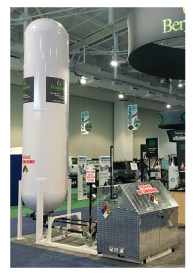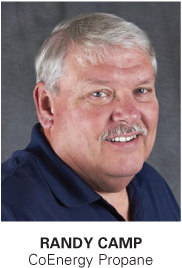Friday, June 24, 2016
The propane industry has been experiencing a shortage of qualified bobtail drivers for years, a trend that is likely to continue for the foreseeable future, writes Stuart Flatow, vice president of safety and training at the Propane Education & Research Council. The propane industry is not alone. In fact, there is, and has been, a shortage of all kinds of qualified over-the-road drivers nationwide.

 according to the company. The skid-mounted unit requires less space, giving marketers more room for additional tanks and other propane accessories.
according to the company. The skid-mounted unit requires less space, giving marketers more room for additional tanks and other propane accessories. Randy Camp, manager of CoEnergy Propane (Albany, Ore.), has been appointed to the Linn-Benton Community College (LBCC) Board of Education. Camp has been a member of the LBCC Foundation Board, and was involved in helping LBCC’s Advanced Transportation Technology Center to obtain the equipment and funds to move forward.
Randy Camp, manager of CoEnergy Propane (Albany, Ore.), has been appointed to the Linn-Benton Community College (LBCC) Board of Education. Camp has been a member of the LBCC Foundation Board, and was involved in helping LBCC’s Advanced Transportation Technology Center to obtain the equipment and funds to move forward.